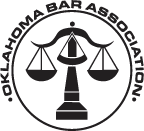On April 11, 2024, Governor Laura Kelly signed into law SB 430, implementing workers’ compensation reform in the state of Kansas. The changes will take effect beginning July 1, 2024.
Summary of Changes
Caps
Current caps in parentheses
- Death benefit cap will increase to $500,000 ($300,000)
- Benefits can exceed death benefit cap for dependent child(ren) until the later of
- age 18.
- age 19 or graduation if still in high school at age 18; or
- until age 23 if in vocational school or college.
- Benefits can exceed death benefit cap for dependent child(ren) until the later of
- Permanent Total Disability Cap will increase to $400,000 ($155,000)
- To be eligible to pursue permanent total disability benefits, an injured worker must prove the work accident resulted in at least a 10% permanent partial impairment to the body as a whole or, if the injured worker has preexisting impairment, the injured worker’s total permanent partial impairment to the whole body must be at least 15%.
- The injured worker must still prove they are realistically and essentially unemployable as a result of the accident.
- Permanent Partial Disability Cap will increase to $225,000 ($130,000)
- Injured worker must prove permanent partial impairment to the whole body from the work accident of at least 7.5% or, if the injured worker has preexisting impairment, the injured worker’s combined permanent partial impairment to the whole body must be at least 10%.
- Work disability is still determined by the average of wage loss and task loss related to the work injury.
- If the workers’ compensation accident results in only permanent partial impairment, an injured worker’s recovery is capped at $100,000. ($75,000)
- Caps will remain fixed until July 1, 2027, at which time a cost-of-living adjustment will kick in to raise caps on a yearly basis. The annual percentage increase will be based on a 5-year average of the percentage increase in the State’s average weekly wage.
Preliminary Hearing
Injured workers shall provide records to opposing counsel at least 20 days before a preliminary hearing. If records are not provided at least 20 days before the preliminary hearing, the court is empowered to grant additional time for the employer to provide evidence that may contravene the employee’s records.
Future Medical
The authorized treating physician’s opinion as to the need for future medical is presumed determinative on the issue of whether future medical will be awarded in cases where there have been no invasive procedures. This presumption can only be overcome with clear and convincing evidence.
If the injured worker had invasive treatment as a result of the work injury, the authorized treater’s assessment that no future treatment will be needed is still presumed determinative of the issue. However, that presumption may be overcome if claimant proves it is more likely than not that future medical will be needed.
Post Award Medical and Attorney Fees
The only procedure allowed to pursue post award medical treatment will be under the provisions of KSA 44-510k. An injured worker may not pursue post-award medical benefits under preliminary hearing procedures of K.S.A. 44-534a.
If post-award benefits are provided within 30 days after an application for post award medical is filed, no attorney fees should be awarded without showing, by clear and convincing evidence, that the attorney had significant legal effort.
Court-Ordered Independent Medical Examinations (COIME)
The Administrative Law Judge may only order one COIME without agreement of the parties.
- If the ALJ does order a COIME, the COIME must be done prior to Prehearing Settlement Conference.
- In addition, the COIME may not be used for the purposes of a rating, permanent restrictions, or opinions on permanent total disability.
Parties are still free to agree to a joint IME.
Medical Records
- Upon receipt of notice from the Division of the setting of a Regular or Post-Award Hearing, the parties shall exchange medical reports including those by examining and treating health care providers. The exchange shall be at least 30 days before the hearing.
- The testimony of a treating or examining health care provider may be submitted into evidence without additional foundation by submission to the opposing side of a complete medical report that complies with procedural rules set forth in the statute.
- Upon receipt of proposed complete medical report, a party has ten days to file a written objection to the offering party stating the grounds for the objection. The ALJ shall then conduct a hearing on the objections as to whether the proposal meets the requirements of a complete medical report.
Notice of Injury
An injured worker must notify the employer of the accident within 30 days from date of accident or 20 days from last date of employment, whichever is earlier.
Stipulated Awards
If the employee is represented by counsel, a settlement can be completed without the need for a settlement hearing. The Division is mandated to create the appropriate stipulations and Award documentation. The Administrative law judge is given five days from receipt of the signed stipulation to approve the agreed award.
Fund
The Kansas Second Injury Fund is provided a procedure to implead a statutory employer in cases where the primary employer is determined to be uninsured and without ability to pay benefits.
Social Security Offset
An award of permanent partial or permanent total disability shall be subject to an offset equal to 50% of the Claimant’s Social Security retirement benefits.
An award of TTD and TPD benefits shall not be subject to an offset for Social Security Retirement benefits.
Wages
The calculation of average weekly wage shall include vacation, sick leave and PTO paid during 26 weeks before the accident.
In addition, the average weekly wage calculation eliminates the first week of wages from calculations if the employee did not work a full week.
Unauthorized Medical
The allowance per case for unauthorized medical is raised to $800.
Per Diem
If an employee is required to be away from home all day to obtain medical treatment, the employer shall pay the employee a $30 per diem.
The employer shall be responsible for reimbursement of the reasonable expenses of overnight accommodations as needed to avoid undue hardship on the employee.
Transcription of Hearing
The Director may order hearings to be recorded by digital recording or other means and later transcribed by a certified shorthand reporter or notary public who shall attest to the transcription’s accuracy.
If you have any questions, please contact your MVP attorney directly.







